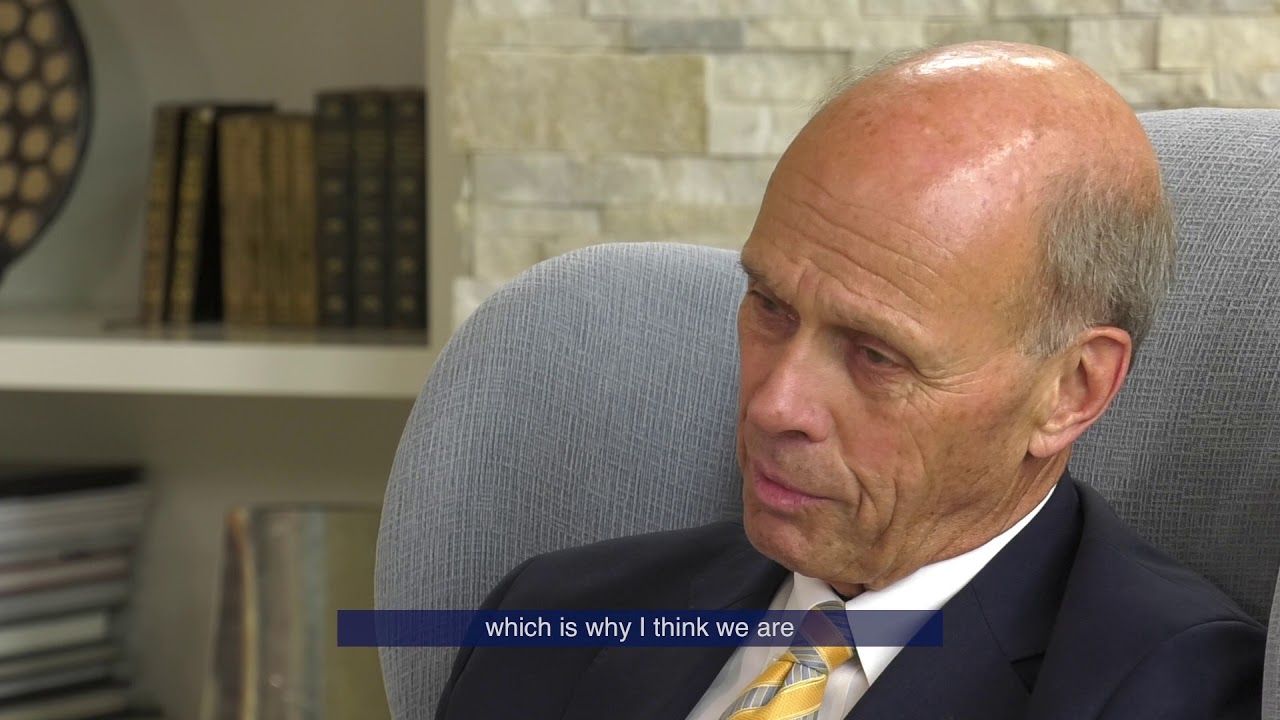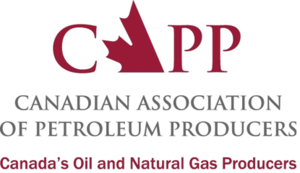
Alberta’s Energy Minister Sonya Savage. had the privilege, on behalf of Mr. Kenney’s government, to release the much delayed and controversial report of the public inquiry into anti-energy campaigns (Allan Report). As readers are aware this much maligned inquiry run by J. Stephens Allan was $1-million over budget and delayed several times. Besides the political controversies it stirred, its mandate was assailed by Amnesty International Canada as it “feeds into a worsening climate of hostility towards human rights defenders — particularly Indigenous, women and environmental human rights defenders — exposing them to intimidation and threats, including threats of violence,” This stirred a condescending and lengthy response from Jason Kenney (published in its entirety in the National Post) who on Twitter termed Amnesty International’s letter a “ridiculous attack on Alberta’s defence of energy jobs from foreign funded campaign to land-lock Canadian resources.”

J. Stephens Allan Source: Alberta.ca
In the exercise of communications spin – of which Alberta has many experts- the job of a good communications specialist is to weave a plausible narrative out of material that few journalists will have the time or patience to read. To set out the key messages in easy to understand, bite-size pieces with an air of sincerity and soupcon of understated rage. This also requires a shock and awe strategy as in claims that global environmental campaigns have achieved more than 1,000 divestments representing $8 trillion. In fact the most that could be credibly claimed with respect to Canadian oilsands might be the $20-billion Teck Frontier project which was cancelled and the $14-billion Keystone XL pipeline. Not chump change to be sure.
The inquiry and its final report shines a light on the sophisticated, coordinated and well-financed campaigns – such as the “Tar Sands Campaign.” It also details how these campaigns operate like a business to attract foreign funding in pursuit of their agendas. The goal of these groups was to land lock Alberta’s oil and gas sector, with a specific focus on stopping all oil sands development.
Between 2003 and 2019, total foreign funding of Canadian-based environmental initiatives was $1.28 billion, a figure the commissioner estimates is likely significantly understated.
CAPP President Tim McMillan added further colour stating:
The public inquiry into anti-Alberta energy campaigns brings to light the highly coordinated, well-funded and international nature of these campaigns which have played a part in cancelling billions of dollars in resource projects and thousands of jobs for Albertans.
Impressions
One of the things that drives forensic accountants crazy is not being able to trace all the money. Forensic accounting requires both a very logical mind along with creativity and imagination to think like those who are trying to cloak where their money comes and goes. Stephens Allan is the Alberta leader in forensic accounting. The forensic investigator must be meticulous and document every sentence on the page or the source for each dollar amount discovered and their use. The 657-page report contains 1830 footnotes.
I read the report over five weeks and was left with the following impressions.
First Allan’s findings are not startling. Yes, there was a social movement co-ordinated by many environmental groups opposing expansion of the oil sands and pipelines to remove bitumen from northeastern Alberta. Part 2 of the report was informed by a $1-million contract (“well below Deloitte’s professional rate”) sifting through 20,000 documents and more than 200,000 pages. The result “proved” the obvious: that these groups opposed pipelines and oilsands expansions. Really! Was their agenda hidden? absolutely not as Allan details numbingly throughout his report. The whole exercise reminded me of the expression “shooting fish in a barrel.”
Second, throughout the report there is the unsubstantiated claim that the public debate has been one-sided- that is, the environmentalists dominate the debate. No media studies are given to back up this claim. It is as if the Calgary oilpatch has gone into hiding. Yet in the final section of the report he summarizes the (failed- in his opinion) efforts of the oil industry and Alberta governments over the past decade to win greater amounts of trust from the public (paras 1480-1504). The summary is critical of industry and government “re-branding” campaigns which culminated in the cartoonish Canada Energy Centre (Alberta War Room)- the latter fact seemingly rejoiced by many in Canada’s media. Yet Allan seems convinced that better execution with the leadership of the Business Councils of Alberta and Canada is a worthwhile endeavour. Such an effort requires “leadership …..to focus efforts within Alberta and across the country, through collaboration with the Business Council of Canada and key organizations in other provinces of like mind, industry, labour unions, Indigenous groups (Elders Wisdom Panels, see recommendation 2), environmental organizations and Canadians generally” (emphasis added).
|
Third, Allan thinks, naively, that Canada and Alberta can achieve a “clean environment” and economic prosperity and opportunities for the benefit of all Alberta and Canada through a laundry list of initiatives that is part and parcel of Alberta’s vaunted Economic Recovery Plan. It is all based on Alberta and Canada building on its industry’s reputation as a “responsible and sustainable” resource developer. Russia and Saudi Arabia are predictably singled out as the proper sources of “dirty oil.” “Many observers believe that Canada has among the highest ESG standards internationally that should provide our hydrocarbons with a sustainability and competitive advantage.” The source for this quote? It is none other than from a paper written by Mac van Wielingen in June 2021 (“What is the Future of Canada’s Energy Sector? Viewpoint Research -para 1434- footnote 1756). Who could be a more objective source for this claim than the multi-decade oilpatch financier as Mac, the former Chair of AIMCo and Tristone Capital?
Mac van Wielingen Source: macvw.ca
|
This neutral source? Imperial Oil Investor Day and BMO Capital Markets, “400 Billion Barrel Opportunity for Friendly Oil: Canada’s Evolving Role.” para 1436.
Other shibboleths Allan passes on uncritically include- Alberta is entrepreneurial (in the Alberta DNA), innovative and problem-solution focussed. Allan places his trust in technology and the myriad funding agencies (Emissions Reduction Alberta, Alberta Innovates, C-FER Technologies, Energy Futures Lab) – as this answer in advancing technologies like carbon capture, geothermal and hydrogen.
Fourth, Allan shamelessly uses his public inquiry status to promote the industry position that huge amounts of GHG emissions reductions have taken place from TransAlta and Capital Power’s shift to natural gas from coal (para. 1405)- a policy of the NDP fiercely resisted by these companies- until they were amply compensated.
Bias
Fifth, Allan is inherently biased in his selection of sources that consistently support the industry’s technology solutions. Allan in one of his recommendations speaks glowingly about the University of Ottawa’s Positive Energy Centre. Not surprisingly its sponsors include the Alberta Energy Alberta Energy Regulator, British Columbia Oil and Gas Commission, British Columbia Utilities Commission, Canadian Association of Petroleum Producers, Canadian Electricity Association, Canadian Wind Energy Association (CanWEA), Cenovus, Clean Resource Innovation Network, Natural Resources Canada, Ovintiv (Encana) and the Social Sciences and Humanities Research Council. Essentially a who’s who of policy advocacy for the largest players in the electricity and oil and gas industries and their regulators.
Other sources include a reference to Apocalypse Never, Why Environmental Alarmism Hurts Us All, by Michael Shellenberger (footnote 1820). Another important source is the widely controversial author Bjorn Lomborg who, in his recent book False Alarm How Climate Change Panic Costs Us Trillions, Hurts the Poor, and Fails to Fix the Climate, warns that countries will not fulfill their Paris 2015 commitments (not exactly news).

In recommendation for a Natural Resource Development Strategy, he makes the naïve claim that:
“Oilsands development has presented environmental challenges, such as increasing GHG emissions, significant water use, tailings pond management, encroachment on forest and wildlife habitat, etc., but all of the challenges are being addressed. There is every expectation that the same spirit of innovation and ingenuity that facilitated the development of the resource will solve these issues too.” (emphasis added)
Further on, he diminishes the oilsands role by stating:- Canada’s situation is not dissimilar to that of New Zealand – if Alberta’s oil sands were phased out and replaced with supplies from other countries, the estimated reduction in global GHG emissions would be negligible at .03%. Canada’s share of global GHG emissions is 1.5 percent.” This statement just doesn’t pass the smell test. In 2018 Canada’s GHG total production was 730 MT. Oil and gas represented 125 MT and of that latest data suggest the oil sands emissions are about 70 MT per year according to a Government of Alberta website. 70 MT would constitute 10 per cent of Canadian GHGs. If Canada contributes 1.5 per cent of global GHG emissions then the oilsands contribute 0.15 per cent of global emissions rather than the 0.03 per cent in the report an understatement of five times.
Sixth, Allan’s zest to find all the money naturally recommended that the not-for-profit sector’s financial disclosure needs to be improved. The impression is left that the ENGOs are hiding something. And yet- so much information – 200,000 pages are available. Allan’s solution is to treat the not-for-profit-registered charities like public corporations. This is simplistic and would require thousands of hours of time for these organizations. Are Suncor and other public companies’ open about the amounts they spend on political advocacy? How informative are CAPP’s financial statements? Well I could not find them on their website. They do list their members Without financial statements and an annual report to review, the public has no idea how much CAPP spends on advocacy. Moreover, Canadian securities law does not require public companies to disclose how much they spend on advocacy.

In a discussion paper entitled Dollars, democracy and disclosure, the Shareholder Association for Research & Education canvassed the disclosure situation in the U.S., United Kingdom and Canada for political activities. The inappropriate use of public advocacy can bring a firm’s reputation into disrepute and have a material impact on the value of a firm, Think SNC-Lavalin. The SHARE study found that in Canada the only companies with any disclosure were following the Global Reporting Initiative (GRI) which is not compulsory. In the case of Canadian firms following the GRI -public policy positions and participation in public policy development and lobbying- ” mostly did not report on that indicator.” The report’s authors are not overly optimistic that Canada’s fragmented securities regime will soon adopt even voluntary standards for disclosure Here again is a case of criticizing ENGOs while giving a free pass to corporations and trade associations.
Opinion
In the end over $3 million of Alberta taxpayers’ moneys were consumed to “prove” those ENGOs are opposed to oilsands and pipelines development. Was it worth it to Kenney’s government to reinforce the industry’s tropes? Allan recognizes that both government and industry “branding” campaigns have failed. The 657-page report comfirms this impression.
|
Quotations:
I agree with a quote attributed to Tzeporah Berman when she said: “The mistake Vivian Krause and Premier Kenney make is thinking that it’s one campaign. It’s not,” Berman added last month. “It’s dozens of campaigns. If it’s anything, it’s a movement or movements.” Para. 1190
Praise for the ENGOs’ strategy
I observe that the Tar Sands Strategy provided the framework for this movement among the Foundations and the ENGOs, as is described in detail throughout this report and as represented in the Strategy and tactics noted in Part II of this Report. The Strategy, its implementation and its sustained execution from 2008 to the present, is impressive. para 1191
Praise for environmentalists’ collaboration:
I observe that the Strategy has been successful in large part due to the focus on the common objectives of the Strategy as well as on a high degree of collaboration among the network of participants. I was struck by the contrast to my own experience in the not-for-profit sector in Calgary, where there is a more competitive environment as opposed to collaborative. In fact, as an aside, the success of the collaborative approach is something that we can learn from in achieving greater success in advancing community initiatives. para. 1194
Allan’s theory of organization
While some may ask about the intentions and motivations of organizations that participate in the movement, a dynamic that is rarely addressed is that these are entities that must also focus on their own relevance and survival. They must vie for public attention in an already information saturated world. The risk and the limitation of these organizations is that they are generally single-purpose entities, for example environmental activism focused on blocking pipelines and opposing oil and gas, or other social or environmental causes. Like an industry unto themselves – these organizations can work like small armies continually looking to mobilize themselves against a cause and they are prepared to adapt. These organizations typically focus on large, high-profile causes where they have a chance of proving that they can have an impact. This in turn provides justification for donor support, and indeed, justifies their ongoing existence. para. 1199
Allan’s theory of bureaucratic self-interest
This is not a specific criticism of these entities. Rather, it is, in my opinion and in my experience, a fact that most organizations (including not-for-profit and charitable organizations), most of the time, are striving to sustain themselves. In fact, financial sustainability is existential to all business entities. As these environmental agencies adapt to the reality of external global circumstances, they are willing to shape their stories to serve their own need to survive. As was related to me by an individual who was close to one of the organizations, “We were being entrepreneurial; we went to foreign donors because they were prepared to fund us.” para. 1200
A suggestion, not a finding of, pecuniary self-interest
I am prepared to accept that the Tar Sands Campaign Strategy and the funding thereof, was driven at the outset by US foundations, primarily concerned with the challenges of climate change. Undoubtedly, there have been some supporters of the Strategy who have gained economically by supporting the Strategy, but the Inquiry has not conducted any research to support that, and I make no findings in that regard para. 1218
Kudos to ENGOs’ marketing chops
I am also prepared to accept that many of the ENGOs are driven by an honest concern about the threats of climate change. However, I also believe the ENGO community is, as noted above, an industry unto itself. Like any business financial sustainability is essential. Trends emerge, markets change and financial sustainability is ensured by adapting to make your product attractive on an ongoing basis. Many of them have had a history of moving from cause to cause, from salmon farming, to forestry, to water, to oil and gas, to agriculture. There is no doubt these are all important issues to humanity, but these organizations sustain themselves and their management with brilliant marketing campaigns. They are highly effective fundraisers and marketers . para.1219
Views on Polarization
The concerns identified by Rosling are concerns that I share. In submissions to the Inquiry, many of my interviews, and much of my research, I have been directed to observations with which I agree, to the effect that activism that leads to extremism has the potential to seriously undermine the ability to achieve positive outcomes. Extremism shuts down open-mindedness, a trusting, free and respectful exchange of ideals, and can limit and even prevent, open inquiry into the conditions and impacts of desired change. Extremism thrives on narrow mindedness, divisiveness, the fracturing of interests, and often leads to polarization which can easily turn into aggressiveness, hostility and dehumanizing behaviours of others who may have different views. I agree with the observations of others that this is a huge risk for governance integrity within a civil society, and regrettably, it appears to me that Canada is increasingly moving in this direction para.1224
 Swedish physicist, Hans Rosling Source: Wikipedia
Swedish physicist, Hans Rosling Source: Wikipedia
Rosling is the author of Factfulness: Ten Reasons We’re Wrong About the World–and Why Things Are Better Than You Think
Participation in anti-Alberta energy strategy not impugned
As I have made clear throughout this report, I do not find that participation in any anti-Alberta energy campaign or evincing an intent harmful or injurious to Alberta’s oil and gas industry constitutes misconduct on the part of any party, including those involved in foreign funding and government funding, and I do not impugn such participation. para. 1229
Clarifications on “anti-Alberta”
Non-anti-Alberta work may be commendable
Free speech is ok
|
Social consequences (and economic) consequences of an ailing oilpatch are ‘staggering”
Despite all of their efforts over the past two decades, the Alberta energy industry and the Alberta government remain on their back feet attempting to defend the fossil fuel industry, while witnessing massive amounts of capital flee the Canadian market and experiencing relentlessly high unemployment among one of Canada’s most educated, worldly and young workforces. This is a crisis not only for Alberta but for Canada. Many of those displaced from the industry came to Alberta, from other parts of Canada or internationally, with a promise of opportunity only to find themselves joining longtime residents in the ranks of the unemployed or underemployed. Alberta’s prosperity has been dealt a blow, not only economically but also through growing social issues such as expanding mental health struggles, rising suicides and increasing incidents of domestic problems. The social and economic impact of the depressed energy sector is staggering and has shaken Alberta to its core. para. 1474